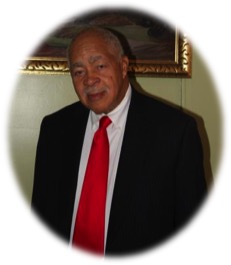
 Legendary BSC alumnus William B. Robertson dies at 88 Charles Boothe, Bluefield Daily Telegraph, W.Va.
Legendary BSC alumnus William B. Robertson dies at 88 Charles Boothe, Bluefield Daily Telegraph, W.Va.
Jun. 23—BLUEFIELD — A legendary Bluefield State College alumnus has passed away.
William Bernard Robertson, for whom the BSC Library is named, died Monday at 88 years old.
A Roanoke, Va., native, Robertson received a bachelor’s degree in secondary education in 1954 and a bachelor’s degree in elementary education in 1956, both from Bluefield State.
He led a life of outstanding accomplishments, including serving in an executive capacity in the administrations of five U.S. Presidents in a career that spanned more than six decades.
BSC President Robin Capehart praised Robertson’s life and legacy.
“He dearly loved his alma mater and often shared how, when he was a student here, BSC President Henry Lake Dickason and faculty members like Othello Harris-Jefferson made a profound impact upon his life,” Capehart said. “Two years ago, the Bluefield State College library was renamed the William Bernard Robertson Library in recognition of his distinguished career in education and public service.”
Capehart said that just a few months after Robertson was the keynote speaker at BSC’s 2019 commencement, he returned to address a capacity audience at the library dedication ceremony.
“At that event, he was saluted for his career in education and public service through which he would pass along to others the gifts of wisdom and inspiration he had received,” he said. “Among the many endeavors in service to others were two that gave him special joy. As a young man, he led a statewide program through which the Virginia Jaycees raised enough money to establish a camp for people who are developmentally disabled. Camp Virginia Jaycee would serve more than 42,000 individuals with special needs over four decades.”
Capehart said that following his retirement from public service, Robertson returned to the classroom to teach in an inner city school in Tampa, FL. For many years he brought groups of young students from Tampa’s Sligh Middle School each summer to visit his alma mater and encourage them to pursue a college education.
“The Bluefield State College family has lost a true gentleman,” he said.
Robertson also served in an executive capacity with the U.S. Department of State, and was appointed to then-President Richard Nixon’s committee on mental retardation, traveling to more than 50 nations during that time.
Gerald Ford made him Director of the Peace Corps for Kenya and the Seychelles and he kept that position during the term of Jimmy Carter; he worked for Ronald Reagan as Deputy Assistant Secretary of State for African Affairs; and George H. W. Bush appointed him to the Take Pride in America Committee and made him co-chair of the Federal Task Force on Disabilities.
He also served on the staff of Virginia Gov. Linwood Holton from 1970-1973, the first black decision-maker in any southern governor’s office.
Monroe County writer Becky Crabtree became friends with Robertson as they were working together on his life story, which will be published by the University of Virginia early next year.
The title, “Lifting Every Voice: My Journey from Segregated Roanoke to the Corridors of Power,” sums up his life, she said. “He showed me that people of all colors built this country and that one person can make a difference.”
When Robertson traveled from Roanoke to Bluefield, he had to ride in the “colored car,” she said, because of segregation and he later helped integrate Lee Junior High in Roanoke.
He also negotiated an inmate revolt at the Virginia State Penitentiary in 1972 and in 1970 resolved a hostage situation at the Southwestern State Hospital in Marion, Va. she added.
Crabtree said Robertson “spent a lifetime giving a voice to those who could not speak for themselves: minorities, the poor, women, and the handicapped.”
“Camp Virginia Jaycee was his creation and it served the mentally and physically handicapped for over 40 years,” she said. “His pride in being a graduate of Bluefield State College was incredible and he felt that our commonality as BSC alumni strengthened our writing and collegiality.”
“He once told me that he got up every morning and asked himself what he could do for this country he so loved,” she said, and he wanted to see “liberty and justice for all” a reality.
Crabtree said he had a positive impact on the people he met, including her.
“On a personal level, he persuaded me to apply for a teaching job after I retired (something he had also done) and celebrated with me when I got it,” she said. “He laughed when I named my car ‘Big Blue,’ and applauded my recent efforts to recognize a Black cemetery in Peterstown. I am certain I am only one of thousands he inspired.”
— Contact Charles Boothe at [email protected]
